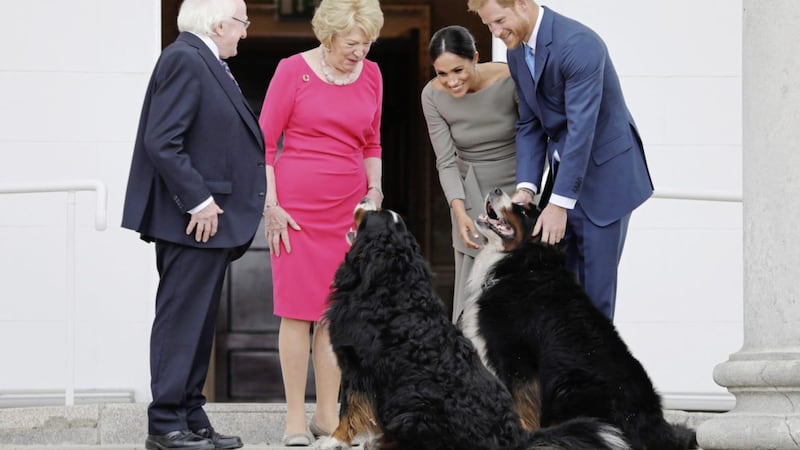Metaphorically speaking the nationalist people of the north have been knocking on the door of the Irish nation seeking entrance as rightful members of the nation for nearly one hundred years.
The custodians of the key to the door – the Irish government and its state apparatus – have been gate-keepers, rather than ‘gate-openers’.
Partition, the enduring republican struggle and the fall-out from Brexit have placed partition and the politics of this nation to the fore.
The days of ‘gate-keeping’ are over. And while that particularly reality has yet to firmly settle in the minds of the Taoiseach Leo Varadkar and the leader of Fianna Fáil, Michéal Martin; it is the settled view in the minds of northern nationalists and republicans across this island.
Both are organised and mobilised in a way they have not been since the period after the 1916 Rising until the end of the Civil War.
The last 100 years of partition have left a legacy of political failure across this island which is most acutely felt in the north where people paid with their lives, on all sides, and nationalists endured economic discrimination and sectarian and cultural domination.
The political, economic and social control of the southern state was in the hands of Fianna Fáil primarily and occasionally Fine Gael. Both conservative parties implemented economic and social policies which suited the comfortable or wealthy.
The working classes – urban and rural - filled the immigration boats and joined the Famine trail to the US and elsewhere. The big difference was British policy produced the Famine trail and Irish governments the immigration trail.
The Labour Party opted for coalition and pragmatism within the state boundaries and ignored partition as did Fianna Fáil and Fine Gael.
Padraig Pearse and James Connolly’s vision of Ireland was buried beneath the concrete of partition.
The twenty-six-county state morphed into the Irish ‘nation’; the ‘country’; the Irish ‘people’.
But all of this is unravelling in the face of the demands of republicans and nationalists in the north and the aftermath of the economic recession in the south which has shaken up the southern establishment and opened a political space for a republican socialist alternative to Fine Gael and Fianna Fáil.
And that growing alternative is embodied in Sinn Féin which occupies an oppositional role in the Dáil and Seanad and a government role in the north.
The female face of the party’s leadership was very evident in Belfast last week when Mary Lou McDonald TD and Michelle O'Neill MLA, were joined by Sinn Fein’s candidate in the presidential election, Liadh ní Riada, to launch the party’s bid for the presidency.
Her presence in the campaign ensures that partition and the alternative economic arguments that would otherwise be ignored are being debated.
In May next year a referendum will be held to change the Irish constitution to allow people from the north and the Irish diaspora to vote in presidential elections.
There is a high expectation that the constitution will be changed and the campaign will allow for another airing about the affairs of the nation and the impact of partition.
But for the consistent efforts of Gerry Adams and Seanadór Niall Ó Donnghaile (who I work with) it is unlikely the referendum would have been held.
The presence of Liadh ní Riada, next May’s referendum, the effective northern nationalist voice lobbying the Irish government, the alternative national ideas – economic, social and cultural presented by Sinn Féin, the end of the unionist majority and the potential of a nationalist majority in the north and the demand for a unity border poll are generating a momentum for unstoppable change.
Leo Varadkar and Michéal Martin have a duty to reflect these changing times in their approach to the politics of the state and the nation.
And while the Taoiseach and the Tánaiste, Simon Coveney, are responding positively what is required is a significant step change.
Partition has failed the people of this nation - nationalist and unionist.
The Irish government and Fianna Fáil must actively pursue its end and join with others in that all-important endeavour.
It is time to put in place a practical programme which will take the people of this nation – nationalist and unionist – out of the quagmire of partition onto the firmer ground of a new and independent Ireland.








